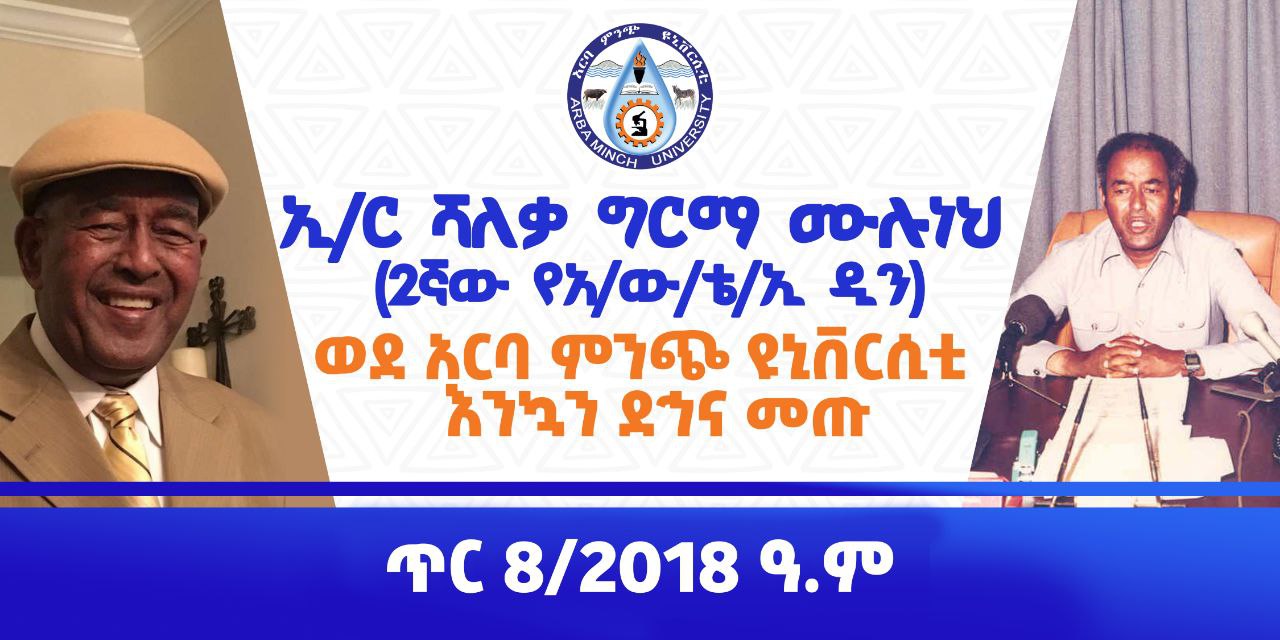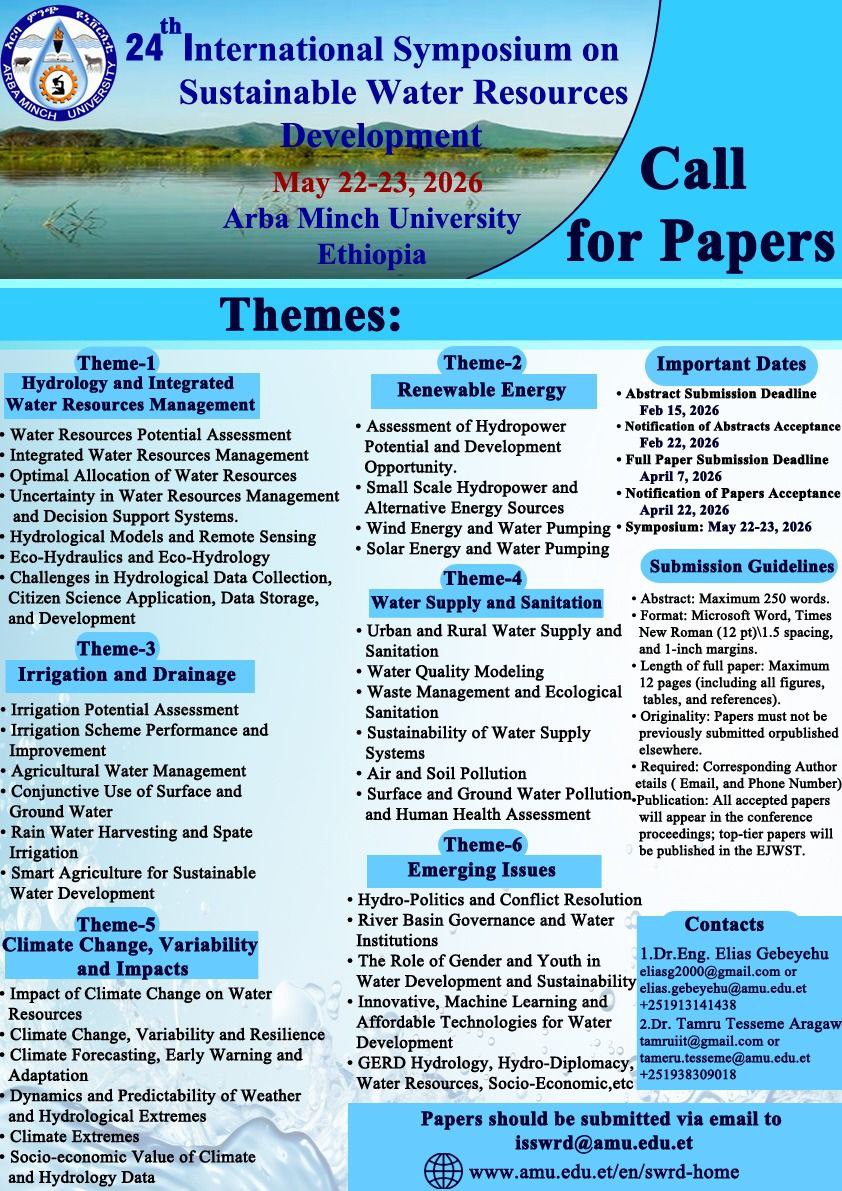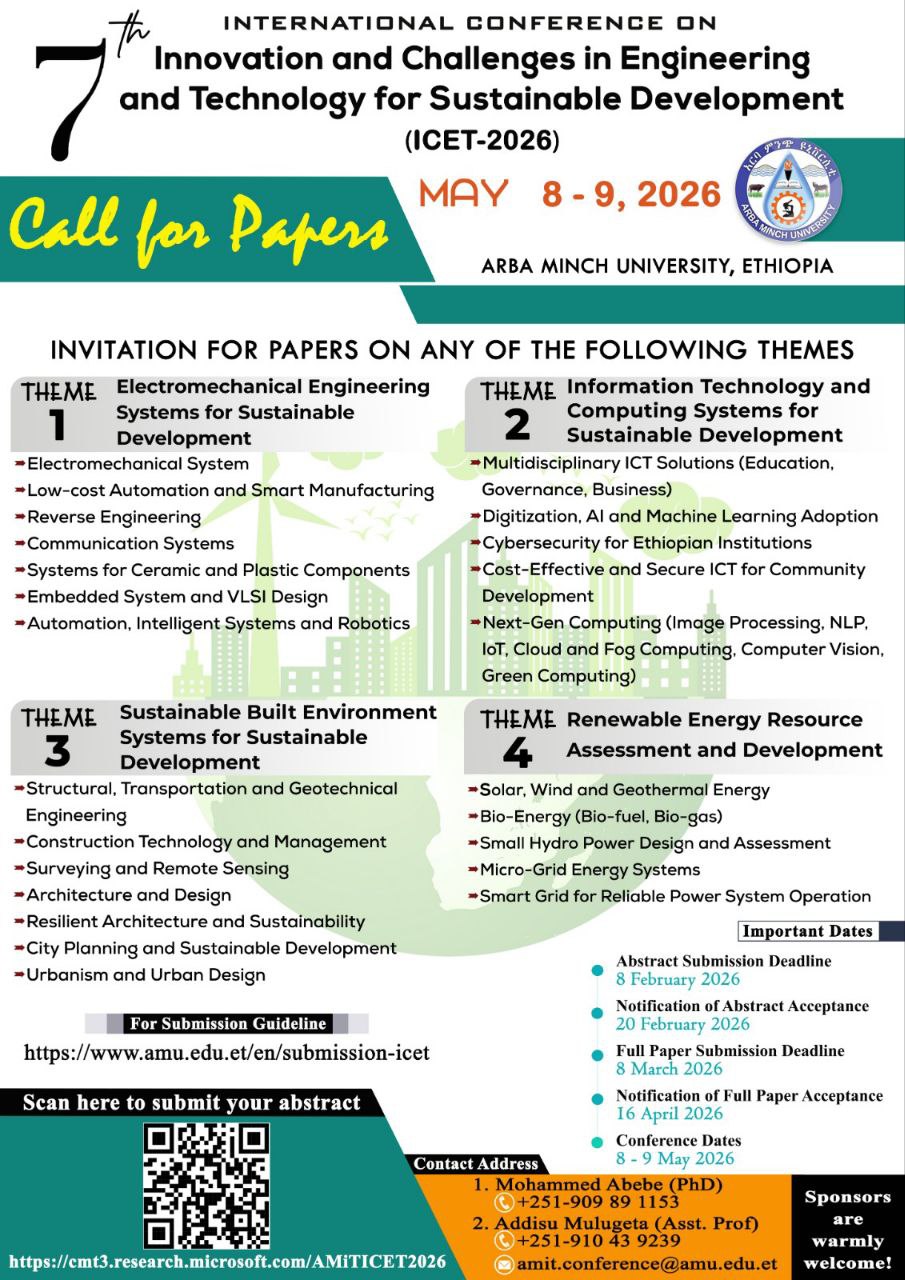‘‘When it comes to quality education, we have long way to go. In fact, we need a comprehensive approach to address the problems of access to primary and higher education. Quality is a multi-dimensional concept and everybody is responsible to make it possible in the country,’’ said, Arba Minch University President, Dr Feleke Woldeyes.
Dr Feleke, said, this while inaugurating a two-day seminar on quality education at Lecture Theatre, Main Campus which began on 27th to 28th December 27. The first day was meant for instructors, while the concluding day for the university students.
The theme of the seminar was ‘Quality enhancement and assurance is the responsibility of everyone in an education institution’. The program began with IQE Director, Mr Yohannes Tigro, introducing the speakers, Director General of Higher Education Relevance and Quality Agency (HERQA), Dr Tesfaye Teshome, Quality Audit Directorate Director, Mr Kassahun Kebede.
Dr Tesfaye in his highly interactive bilingual presentation said, ‘‘The definition of quality has been in the West looked into various perspectives. It’s a multi-dimensional concept which is subjective because every individual and community understands it in terms of perspective.
Employers understand it in terms of competence level of their graduates of the university; whether they are really producing qualitative service to them, parents understand it in a different way.
HERQA, he said, define quality as a fitness for purpose, so every institution before they open any programs has to have specific objectives and purpose aligning with the government strategy and developmental objective, and it has to align with the need of the employers as well.
On, AMU, he added, ‘‘AMU has already been audited by HERQA, and this is the second round approaching. We urge them to look into the previous quality audit report, its weaknesses and strengths and come up with intervention, whereby we will give our input.’’
Exemplifying higher education and quality, he avers, ‘‘Elementary education is right of every citizen, while higher education is privilege. Therefore, concept of quality goes beyond the fitness of purpose; you have to have a benchmark.
In higher education, people must be allowed to think unthinkable thing, let them go beyond their territory and think in pragmatic terms. Read your students what they need and drive in that direction,’’ he added.
He also dwelt into the finer aspects of quality as excellence, zero errors, fitness of purpose, threshold and value for money. He said, ‘‘Quality is important because of competition, customer satisfaction, maintaining standards, accountability, credibility, prestige and status.’’
Mr Kassahun while speaking on quality assurance, said, ‘‘Plan your quality, it should have objective, set standards and communicate it to all. Develop indicators when you achieve quality then set thresholds and monitor whether it has been achieved or not.’’
Elaborating further he said, ‘‘you should have internal study, assessment and external review based on the self-assessment followed by monitoring and follow-up. Quality assurance is of two types i.e. internal and external, whereas internal is most important because you are responsible to assure your own quality.’’
The program was interspersed with question-answer sessions. Dr Tesfaye also spoke on ‘Procedures of Institutional self-evaluation’, whereas Mr Kassahun carried out some practical activities with the participants.
On the concluding day, Dr Tesfaye spoke on ‘What is quality assurance in education,’ and ‘Importance of Cooperative Learning for Quality Assurance,’ whereas Mr Kassahun highlighted ‘Students’ roles and responsibilities in the provision of quality education & cooperative learning.’ The seminar concluded with discussion and feedback.
By Philips Joseph




